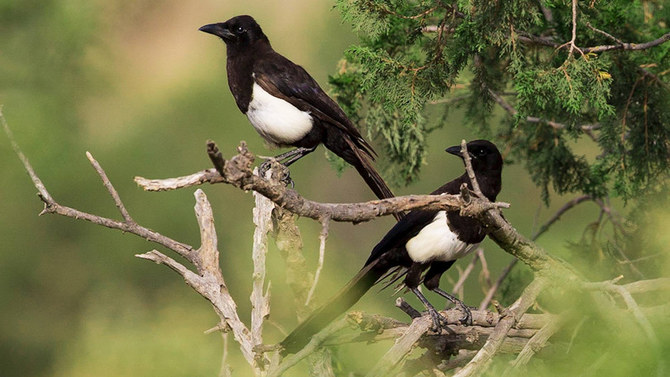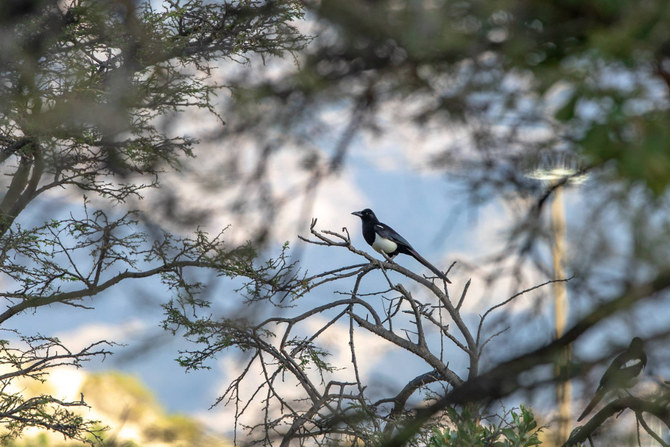ASIRI: The Asiri magpie, which is endemic to Saudi Arabia, is under threat according to a leading ornithologist.
Mohammed Shobrak, based at Taif University and a member of the Scientific Advisory Committee of the Memorandum of Understanding on the Conservation of Migratory Birds of Prey in Africa and Eurasia, said: “It has greatly decreased, which has made it a critically endangered bird. If no one intervenes to preserve it, it would become on the verge of extinction and become difficult to save.”
The Asiri magpie, which lives in the southwest hills of Saudi Arabia, is a member of the Corvidae family. Its scientific name is Pica asirensis, and it was classified as a separate species through a scientific study on genes published in 2003. The study confirmed that the magpie is separate from other bird species and cannot be found anywhere else in the world.
Shobrak said the latest studies, sponsored by Saudi Aramco in partnership with the National Center for Wildlife, showed that the magpie, which was tracked via satellite, lives in high-altitude regions and, unlike other birds, does not migrate to low-altitude regions during the winter season.
The study ran computer programs to determine the bird’s favorite locations in its historical habitat, which stretches between Taif in the north and Abha in the south, and found that 80 percent of the environment adequate for its survival had disappeared and only 20 percent remained, most of which was in Asir between Tanomah and Abha. The drastic decrease in its numbers makes it among the rarest birds in the world.
Shobrak said that the drop in population was due to several reasons, including the unregulated expansion of urban areas and its impact on the bird’s habitat, climate change and its impact on the bird’s habitat, such as the death of juniper trees, and natural as well as deliberately lit fires affecting its habitat.
Like any other bird, Shobrak said that the Asiri magpie needed an adequate environment to ensure its survival, via breeding and nutrition.
“The responsibilities have doubled to save this bird, which is the only exclusive Saudi bird that cannot be found anywhere in the world,” he said. “That is why the responsibility is big and according to my knowledge, the National Center for Wildlife is working on a national project to preserve this species that carries the name of one of the most precious and most beautiful regions in the Kingdom, which is the region of Asir.”























